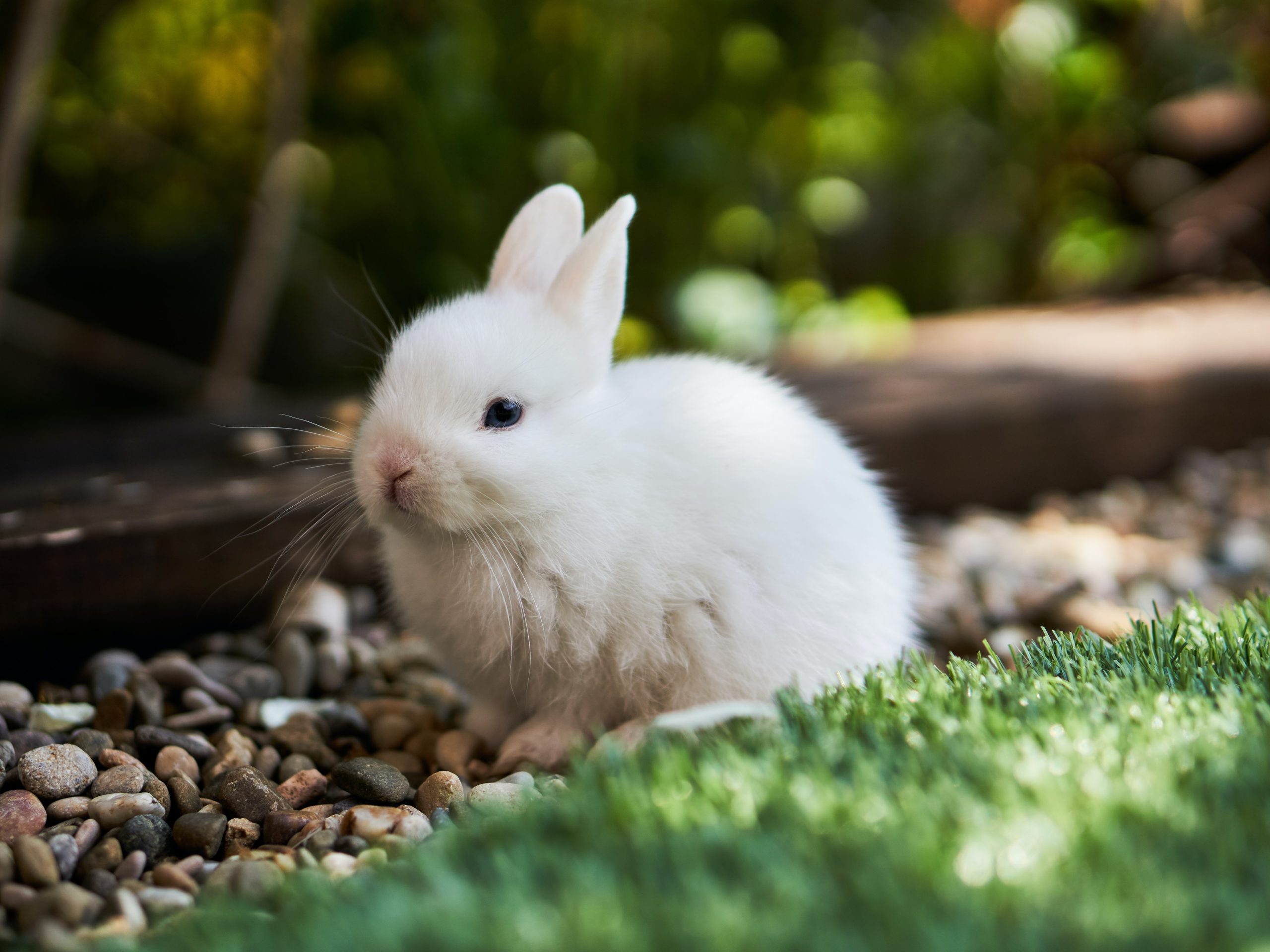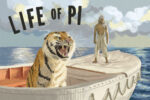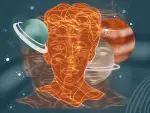Despite the massive discoveries science makes each year, the universe remains a mystery.
There will always be something more to discover. Why do the planets revolve around the sun? What makes us human? Are we alone in the universe? The questions are endless, and they are just as perplexing to scientists as they are to the ice-cream vendor selling chocolate-covered vanilla cones on a hot summer day.
But then, this thing happens where people grow accustomed to a routine. You feel safer when you’re surrounded by what is familiar to you, whether it’s the routine of a nine-to-five job, the transit you use to get to work, what you order for breakfast before or the people you expect to see once you arrive at the office. It can even happen at college, whether it’s the friends you meet, the campus you walk on daily or the cafeteria food.
At a certain age, you stop asking questions. You begin to see life as monotonous and boring. You get so absorbed in your own world that you often forget to ponder about the mystery that is the universe, especially when there are so many unanswered questions. That’s why it’s better to live on the edge of the rabbit’s fur.
In Jostein Gaarder’s novel of philosophical history, “Sophie’s World,” the questions, “Who are you?” and “Where does the world come from?” are found mysteriously written on blank sheets of paper in Sophie’s mailbox. The strange discovery prompts her to enroll in a philosophy course and ask questions, hoping to find answers regarding the notes in her mailbox.
You don’t have to be a philosopher to take this motto to heart , and there’s no need to spoil a good read, but focus on what Gaarder says concerning the universe. He doesn’t compare the universe to a floating speck of dust in space (although the phrase is mentioned a couple of times in the novel), nor does he compare life to a box of chocolates. Instead, Gaarder compares the universe to a magician’s black hat and the world to a white rabbit.
The magician is symbolic of the creator of the universe. Like a rabbit appearing from a magician’s black hat, the origin and design of the universe are unknown. You know that it’s a trick, but before, it wasn’t as prevalent. The rabbit is symbolic of the Earth, which is only one of the celestial bodies that can be identified in the universe. The people of Earth are the little ticks that emerge on the tip of the rabbit’s fur.
From birth, people have such curiosity of the world around them. Remember, as a child, how a bird was such an interesting creature, or how you thought the moon was always following your parent’s car as you rode in the backseat? I bet, at that moment, nothing in the world seemed as mysterious as the moon. Then, you learned that the moon doesn’t follow you around though, and you became accustomed to seeing birds, especially pigeons , everywhere, and they aren’t exciting anymore.
As you learn, you begin to expect, and as such, you lose interest. You begin to see the world differently, primarily focusing on the routine you work to maintain. By the time you’ve given up on curiosity and excitement, you’re at the base, sleeping warm and snug on the rabbit’s skin.
Doesn’t that sound more appealing than clinging onto the tip of the rabbit’s fur as you get closer to finding out truths, seeing the views the rabbit does as it prances around in the forest and living spontaneously?
Maybe at the beginning, but not for long. I am proud to say that I’m a college student learning to live on the edge of the rabbit’s fur. It’s a lifestyle of curiosity, understanding, questioning and thinking, but it’s worth it. Here is a list of the benefits I’ve personally experienced from living on the rabbit’s fur.
1. The Easier A
“Those who aim for A’s don’t get as many A’s as those who abandon the quest for A’s and seek knowledge or at least curiosity.” – Sonya Huber, “Shadow Syllabus”
Hard work is the inevitable here, but the load lightens up considerably once you fall in love with the knowledge the class offers.
There’s always an underlying (and as hard as it is to believe, applicable) reason as to why you need to learn the information, so ask questions about it. Remember, before you can fully understand something, you must understand the concept of it.
Here come the hours of studying!
2. The Critical Thinker
So, you’re getting easier A’s on your assignments, and that’s because you’re learning how to become a critical thinker. Situations aren’t as black and white as they sometimes appear to be. There is an indefinite chain of connection between every event, and you want to learn what that connection is.
By asking questions, the inevitable breaking down of knowledge begins. You want to get to the root of why something is the way it is.
Suddenly, you’re raising your hand more in class and giving just as much input into discussions as that one person who always has their hand raised. Trust me, your professors (and your parents) will appreciate it.
3. The Search for Happiness
As a college student, you face a lot of authority figures that manage to piss you off, or those classmates that always find something insensitive to say in your diversity class. You get annoyed, or you don’t because questions like, “I wonder why they’re so cranky?” make you think of the other person’s situation.
That’s when you realize you get like that too, and you figure out that you two are much more similar than you had originally thought.
Everyone is searching for their own happiness and sticking to their not-so-wonderful routines, until they begin to see things differently. It pays to be curious about other people because you might just end up learning about yourself.
4. An Appreciation for the Smaller Things
It’s purely astonishing to be alive, to feel emotions, to use your limbs at will, to concentrate in class and to simply be on your bed after an exhausting commute home from college at 10 p.m. By noticing your own existence, you can appreciate the fact that you’re alive.
As you read this, I hope you realize, as I did, that you are a walking masterpiece. I have begun to fully understand my own individuality, and, through questioning, I am properly able to define myself, giving me a new sense of self-esteem. Realize your own existence and know that there is a reason why you are in this universe. Who knew that living on the edge brought self-acceptance?
5. More Daring Chances
I’m not saying that it’s a good idea to go hitchhiking all the way to the other side of the country. That’s a really bad idea actually, but it is a good idea to get out of your comfort zone. College is the time to try new things and experiment (reasonably).
It’s about finding yourself and losing yourself in things you love or have never tried. Only by gripping onto the tips of the rabbit’s fur do we realize that a safe routine isn’t enough to make a gratifying life.
Where did the thrill of the rush go? Why don’t we find this enjoyable? What would make things more enjoyable? Ask yourselves these questions and find the solutions to each of the problems posed.
Remember, the most important thing is that we feel fear (because, c’mon, you’re human), and we accept emotion as another part of the experience. You could be asking why, but the question really is why not? So, try out that new bar, go bungee jumping, take a semester abroad, try a class with a different professor and, by the love of a delicious chai latte, dare to get into the scary adult realm of finances.
I’m sure there are more benefits to having this lifestyle, but as someone who struggled to transition from a full-time teacher to a full-time college student, these are the major things I’ve noticed. There can be more to a fictional book than fiction, so next time you read a novel, make sure to notice the seedlings of truth. It might just teach you a lesson.

















